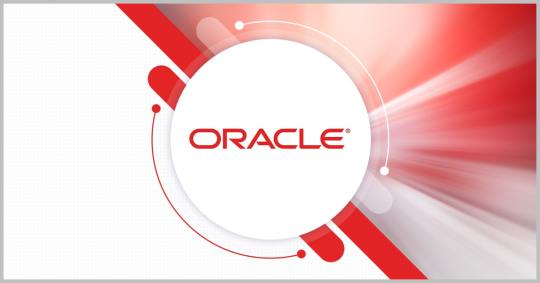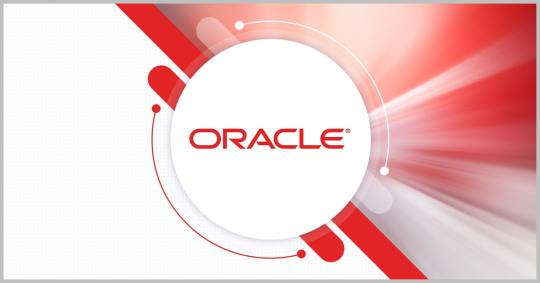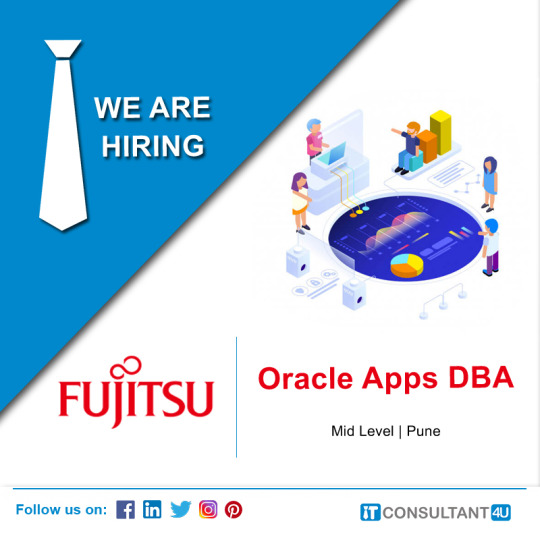#oracle dba jobs
Explore tagged Tumblr posts
Text
Greetings from Ashra Tech
#servicenowdeveloper#APIGEEdev#reactsJSdeveloper#Javaselenium#oracle#sqlserver#DBA#azuredatabrickswithpyspark#ETLdeveloper#ashra#recruiting#recruit#javaspringbootdev#ApplicationAdmin#placement#jobneeds#need#jobs#Hyderabad#azuredeveloper#AvayaAdmin#AzureDataFactory#engineer#bangalore#chennai#technologies#it#staffing#location#new
0 notes
Text
What Oracle Skills Are Currently In High Demand?

Introduction
Oracle technologies dominate the enterprise software landscape, with businesses worldwide relying on Oracle databases, cloud solutions, and applications to manage their data and operations. As a result, professionals with Oracle expertise are in high demand. Whether you are an aspiring Oracle professional or looking to upgrade your skills, understanding the most sought-after Oracle competencies can enhance your career prospects. Here are the top Oracle skills currently in high demand.
Oracle Database Administration (DBA)
Oracle Database Administrators (DBAs) are crucial in managing and maintaining Oracle databases. Unlock the world of database management with our Oracle Training in Chennai at Infycle Technologies. Organizations seek professionals to ensure optimal database performance, security, and availability. Key skills in demand include:
Database installation, configuration, and upgrades
Performance tuning and optimization
Backup and recovery strategies using RMAN
High-availability solutions such as Oracle RAC (Real Application Clusters)
Security management, including user access control and encryption
SQL and PL/SQL programming for database development
Oracle Cloud Infrastructure (OCI)
With businesses rapidly moving to the cloud, Oracle Cloud Infrastructure (OCI) has become a preferred choice for many enterprises. Professionals skilled in OCI can help organizations deploy, manage, and optimize cloud environments. Key areas of expertise include:
Oracle Cloud Architecture and Networking
OCI Compute, Storage, and Database services
Identity and Access Management (IAM)
Oracle Kubernetes Engine (OKE)
Security Best Practices and Compliance in Cloud Environments
Migration strategies from on-premises databases to OCI
Oracle SQL And PL/SQL Development
Oracle SQL and PL/SQL are fundamental database developers, analysts, and administrators skills. Companies need professionals who can:
Write efficient SQL queries for data retrieval & manipulation
Develop PL/SQL procedures, triggers, and packages
Optimize database performance with indexing and query tuning
Work with advanced SQL analytics functions and data modelling
Implement automation using PL/SQL scripts
Oracle ERP And E-Business Suite (EBS)
Enterprise Resource Planning (ERP) solutions from Oracle, such as Oracle E-Business Suite (EBS) and Oracle Fusion Cloud ERP, are widely used by organizations to manage business operations. Professionals with rising experience in these areas are highly sought after. Essential skills include:
ERP implementation and customization
Oracle Financials, HRMS, and Supply Chain modules
Oracle Workflow and Business Process Management
Reporting and analytics using Oracle BI Publisher
Integration with third-party applications
Oracle Fusion Middleware
Oracle Fusion Middleware is a comprehensive software suite that facilitates application integration, business process automation, and security. Professionals with experience in:
Oracle WebLogic Server administration
Oracle SOA Suite (Service-Oriented Architecture)
Oracle Identity and Access Management (IAM)
Oracle Data Integration and ETL tools
The job market highly values Java EE and Oracle Application Development Framework (ADF).
Oracle BI (Business Intelligence) And Analytics
Data-driven decision-making is critical for modern businesses, and Oracle Business Intelligence (BI) solutions help organizations derive insights from their data. In-demand skills include:
Oracle BI Enterprise Edition (OBIEE)
Oracle Analytics Cloud (OAC)
Data warehousing concepts and ETL processes
Oracle Data Visualization and Dashboarding
Advanced analytics using machine learning and AI tools within Oracle BI
Oracle Exadata And Performance Tuning
Oracle Exadata is a high-performance engineered system designed for large-scale database workloads. Professionals skilled in Oracle Exadata and performance tuning are in great demand. Essential competencies include:
Exadata architecture and configuration
Smart Flash Cache and Hybrid Columnar Compression (HCC)
Exadata performance tuning techniques
Storage indexing and SQL query optimization
Integration with Oracle Cloud for hybrid cloud environments
Oracle Security And Compliance
Organizations need Oracle professionals to ensure database and application security with increasing cybersecurity threats. Key security-related Oracle skills include:
Oracle Data Safe and Database Security Best Practices
Oracle Audit Vault and Database Firewall
Role-based access control (RBAC) implementation
Encryption and Data Masking techniques
Compliance with regulations like GDPR and HIPAA
Oracle DevOps And Automation
DevOps practices have become essential for modern software development and IT operations. Enhance your journey toward a successful career in software development with Infycle Technologies, the Best Software Training Institute in Chennai. Oracle professionals with DevOps expertise are highly valued for their ability to automate processes and ensure continuous integration and deployment (CI/CD). Relevant skills include:
Oracle Cloud DevOps tools and automation frameworks
Terraform for Oracle Cloud Infrastructure provisioning
CI/CD pipeline implementation using Jenkins and GitHub Actions
Infrastructure as Code (IaC) practices with Oracle Cloud
Monitoring and logging using Oracle Cloud Observability tools
Oracle AI And Machine Learning Integration
Artificial intelligence (AI) and machine learning (ML) are transforming businesses' operations, and Oracle has integrated AI/ML capabilities into its products. Professionals with expertise in:
Oracle Machine Learning (OML) for databases
AI-driven analytics in Oracle Analytics Cloud
Chatbots and AI-powered automation using Oracle Digital Assistant
Data Science and Big Data processing with Oracle Cloud are highly demanding for data-driven decision-making roles.
Conclusion
The demand for Oracle professionals grows as businesses leverage Oracle's powerful database, cloud, and enterprise solutions. Whether you are a database administrator, cloud engineer, developer, or security expert, acquiring the right Oracle skills can enhance your career opportunities and keep you ahead in the competitive job market. You can position yourself as a valuable asset in the IT industry by focusing on high-demand skills such as Oracle Cloud Infrastructure, database administration, ERP solutions, and AI/ML integration. If you want to become an expert in Oracle technologies, consider enrolling in Oracle certification programs, attending workshops, and gaining hands-on experience to strengthen your skill set and stay ahead in the industry.
0 notes
Text
Principal/Senior Principal CSS Apps DBA
Job Description:As a member of the Support organization, your focus is to deliver post-sales support and solutions to the Oracle customer base while serving as an advocate for customer needs. This involves resolving post-sales non-technical customer inquiries via phone and electronic means, as well as, technical questions regarding the use of and troubleshooting for our Electronic Support…
0 notes
Text
Best Database Institutes in Mohali: A Guide to Kickstart Your Career in Data Management
In today’s data-driven world, managing, storing, and retrieving data efficiently has become crucial for businesses. A solid understanding of databases and database management systems (DBMS) is essential for IT professionals, data analysts, developers, and anyone looking to build a career in technology. If you’re based in or around Mohali and want to master databases, it’s important to choose the right institute.
This guide highlights the best database training institutes in Mohali and what sets them apart from the rest.
Why Learn Database Management?
Database management is at the core of any technology infrastructure. Here are a few reasons why learning database systems is beneficial:
Career Growth: Expertise in databases opens doors to various roles like database administrator (DBA), data analyst, SQL developer, and more.
In-Demand Skill: Companies increasingly rely on data to make decisions, and proficient database managers are in high demand across industries.
Work with Big Data: Knowledge of databases is essential for working with big data and cloud computing technologies.
Increased Productivity: Efficient database management streamlines operations and enhances productivity in any organization.
Key Factors to Consider When Choosing a Database Institute
Before selecting an institute for database training, consider the following factors:
Comprehensive Curriculum: The course should cover both relational databases (SQL, MySQL) and NoSQL databases (MongoDB).
Experienced Instructors: Trainers should have real-world industry experience to provide practical insights.
Hands-On Learning: The institute should provide hands-on training with real-world databases and projects.
Certification: Industry-recognized certifications are essential for boosting your resume.
Placement Assistance: Some institutes offer placement support to help students secure jobs after course completion.
Top Institutes for Database Training in Mohali
1. ThinkNEXT Technologies
Why Choose ThinkNEXT Technologies for Database Training? ThinkNEXT Technologies is one of the leading IT training institutes in Mohali, offering a variety of database courses. Their programs cater to both beginners and professionals, providing a strong foundation in both SQL and NoSQL databases.
Course Highlights:
Training in SQL, MySQL, MongoDB, Oracle, and more.
Practical, hands-on experience with live projects.
Certified trainers with years of industry experience.
Certification & Placement: ThinkNEXT offers industry-recognized certification upon course completion. Their strong placement cell assists students in securing jobs at leading tech companies.
2. Excellence Technology
Why Choose Excellence Technology for Database Training? Excellence Technology is well-regarded for its practical approach to IT training. Their database management courses cover everything from basic SQL queries to advanced database administration, making it ideal for aspiring database administrators (DBAs).
Course Highlights:
Comprehensive training in relational databases (MySQL, Oracle) and NoSQL databases (MongoDB).
Real-world projects to gain practical experience.
In-depth focus on database optimization, administration, and security.
Certification & Placement: Upon completion, students receive certification recognized by top employers. Excellence Technology also provides strong job placement support, helping students transition into their careers.
3. Webtech Learning
Why Choose Webtech Learning for Database Training? Webtech Learning offers a robust database management course that focuses on real-world application and hands-on practice. The institute is known for its practical training programs, which are ideal for both beginners and working professionals.
Course Highlights:
Training in SQL, MySQL, PostgreSQL, MongoDB, and Oracle.
Emphasis on database design, query optimization, and data security.
Both classroom and online training options available.
Certification & Placement: After completing the course, students receive certification that is well-recognized in the industry. Webtech Learning offers placement assistance to help students secure roles in database management and data analysis.
4. iClass Mohali
Why Choose iClass Mohali for Database Training? iClass Mohali offers professional training in a range of IT courses, including database management. Their database training programs are designed to give students hands-on experience with different types of databases, making it a great option for those looking to gain practical skills.
Course Highlights:
In-depth coverage of SQL databases like MySQL, PostgreSQL, and Microsoft SQL Server.
Introduction to NoSQL databases such as MongoDB and Cassandra.
Hands-on lab sessions with real-time database management tasks.
Certification & Placement: iClass Mohali offers certification after course completion and provides placement assistance to help students land jobs in database management roles.
5. Netmax Technologies
Why Choose Netmax Technologies for Database Training? Netmax Technologies is a reputable institute in Mohali that offers specialized training in various database systems. Their courses are suitable for anyone looking to gain deep knowledge of database management and data handling techniques.
Course Highlights:
Comprehensive training in database languages like SQL, PL/SQL, and NoSQL databases.
Hands-on projects and real-world case studies to develop practical skills.
Training in database administration, optimization, and security.
Certification & Placement: Netmax Technologies provides a recognized certification after course completion. The institute also offers placement support to help students secure jobs in the IT industry.
Conclusion: Finding the Best Database Training Institute in Mohali
Choosing the right institute for database training is crucial to building a successful career in data management. Institutes like ThinkNEXT Technologies, Excellence Technology, and Webtech Learning offer comprehensive courses that provide both theoretical knowledge and practical experience with databases. Whether you’re looking to master SQL, NoSQL, or database administration, these institutes have the right programs to help you achieve your career goals.
With the increasing demand for data management professionals, having a strong foundation in database systems is a valuable asset. By enrolling in a top-notch training institute in Mohali, you’ll be well-prepared to take on roles such as database administrator, data analyst, or backend developer in leading companies.
0 notes
Text
Career Opportunities After MCA and MBA in Pune

Pursuing a Master of Computer Applications (MCA) or a Master of Business Administration (MBA) can open the door to numerous career opportunities in today’s competitive job market. Pune, with its thriving IT industry, corporate hubs, and educational infrastructure, offers an excellent platform for students looking to build successful careers in these fields.
In this blog, we will explore the promising career opportunities available to MCA and MBA graduates in Pune, and how the city provides a springboard for success in both technical and managerial roles.
Career Opportunities After MCA in Pune
An MCA degree equips students with advanced technical knowledge and skills in computer applications, programming, and IT management. Pune, known for its vibrant IT industry, offers a multitude of job opportunities for MCA graduates. Here are some of the most promising career paths for MCA graduates in Pune:
1. Software Developer
As a software developer, MCA graduates can design, develop, and test software applications for various platforms. Pune, home to tech giants like Infosys, Wipro, TCS, and Tech Mahindra, offers numerous job openings for skilled software developers. This role involves coding, debugging, and maintaining software systems across industries.
2. Systems Analyst
A systems analyst works closely with business teams to design and implement IT solutions that improve operational efficiency. Pune’s diverse industries, including finance, healthcare, and manufacturing, provide ample opportunities for MCA graduates to work as systems analysts, bridging the gap between technology and business needs.
3. Web Developer
With the growing demand for dynamic and user-friendly websites, web development is a booming field. Pune has a thriving startup ecosystem, and web developers are in high demand to create responsive websites and web applications. MCA graduates with expertise in HTML, CSS, JavaScript, and front-end/back-end development can find exciting opportunities in Pune's tech landscape.
4. Database Administrator
Database administrators (DBAs) manage, store, and organize data using advanced database management systems. Pune’s IT and data-driven industries need skilled DBAs to ensure that critical data is secure, accessible, and efficiently managed. MCA graduates with a knack for databases like MySQL, Oracle, and SQL Server are in demand for this role.
5. Network Administrator
Pune’s IT companies and corporate sectors require efficient network infrastructure to maintain smooth operations. As a network administrator, MCA graduates can design, manage, and troubleshoot complex network systems, ensuring reliable connectivity and data transfer within an organization.
6. Cybersecurity Analyst
With the increasing importance of data protection, cybersecurity is a fast-growing field. MCA graduates specializing in cybersecurity can find roles in Pune’s IT companies, safeguarding sensitive data from cyber threats, performing security audits, and developing security policies to mitigate risks.
Career Opportunities After MBA in Pune
An MBA degree provides students with managerial, leadership, and strategic thinking skills, preparing them for top-tier roles in various industries. Pune’s strong corporate presence and proximity to business hubs make it an ideal city for MBA graduates. Here are some of the top career opportunities for MBA graduates in Pune:
1. Business Consultant
MBA graduates with strong problem-solving and analytical skills can pursue a career as business consultants. Pune, being home to several consulting firms and business hubs, offers MBA graduates opportunities to work with companies to solve complex business challenges, improve performance, and implement strategic initiatives.
2. Marketing Manager
Pune’s diverse industries, ranging from IT to manufacturing, need skilled marketing professionals to drive brand awareness and customer engagement. MBA graduates specializing in marketing can secure roles as marketing managers, developing strategies to promote products and services, manage campaigns, and analyze market trends.
3. Financial Analyst
For MBA graduates with a specialization in finance, Pune’s banking, financial services, and insurance (BFSI) sector offers lucrative opportunities as financial analysts. This role involves analyzing financial data, preparing reports, and providing insights to help companies make informed financial decisions.
4. Human Resource Manager
As companies grow, the demand for efficient human resource management also increases. MBA graduates with an HR specialization can pursue careers as HR managers in Pune’s corporate sector, overseeing recruitment, employee engagement, performance management, and organizational development.
5. Operations Manager
Operations management is crucial for businesses to run smoothly and efficiently. MBA graduates in Pune can find opportunities as operations managers in sectors like manufacturing, logistics, and retail. The role involves streamlining processes, improving productivity, and ensuring cost-effectiveness in the supply chain.
6. Entrepreneurship and Startups
Pune’s thriving startup ecosystem is an excellent breeding ground for aspiring entrepreneurs. MBA graduates with a strong business acumen and innovative ideas can start their own ventures in the tech, healthcare, or retail sectors. The city’s supportive environment, coupled with access to mentorship and funding opportunities, makes it an ideal place for launching a startup.
Why Pune is the Ideal City for MCA and MBA Careers
Pune offers a unique blend of academic excellence, industry presence, and quality of life that makes it an ideal destination for career growth in both technical and managerial fields. Here are some key reasons why Pune stands out:
1. Proximity to Industry Hubs
Pune’s close proximity to Mumbai, India’s financial capital, gives students access to a large network of companies and industries. With tech parks, corporate offices, and industrial zones spread across the city, MCA and MBA graduates can find opportunities in a variety of sectors, from IT to manufacturing.
2. Strong Corporate Presence
Pune is home to many multinational companies, startups, and established organizations across diverse sectors like IT, banking, finance, and real estate. This strong corporate presence provides MCA and MBA graduates with access to numerous job opportunities, internships, and industry collaborations.
3. Excellent Placement Opportunities
Pune’s top institutions, including D. Y. Patil Institute of Master of Computer Applications and Management (DYPIMCAM), Akurdi, have strong industry connections and dedicated placement cells that ensure students are well-placed in top companies. Whether you're pursuing an MCA or an MBA, DYPIMCAM offers excellent placement support and industry exposure, ensuring that students are ready to embark on successful careers.
4. Growing Tech and Startup Scene
With Pune’s burgeoning startup ecosystem and the presence of global tech companies, MCA graduates can explore roles in cutting-edge technologies like artificial intelligence, data science, and cloud computing. MBA graduates can tap into leadership roles within Pune’s dynamic startup environment or work as business advisors for these fast-growing companies.
Conclusion: Build a Bright Future in Pune
Pune provides the perfect environment for MCA and MBA graduates to kick-start their careers. With a robust educational framework, industry connections, and an ever-growing corporate landscape, Pune is the ideal city to explore exciting career opportunities in both the tech and business sectors. Whether you are looking to excel as a software developer, marketing manager, or business consultant, Pune has the resources and opportunities to help you thrive.
If you’re serious about building a successful career, consider D. Y. Patil Institute of Master of Computer Applications and Management (DYPIMCAM), Akurdi, as your stepping stone. With its industry-focused curriculum, experienced faculty, and excellent placement track record, DYPIMCAM ensures that students are prepared for the ever-evolving professional landscape.
0 notes
Text
IUC Computers/tiruvottiyur

IUC Computers Offer Top notch quality software training and placement in evergreen and modern technologies like Database Developer Training, DBA Training, Web Designing Training, C & C++ training, Java Training, Software Testing Training, Microsoft Training, Oracle Applications Training, Android training, iOS training Mobile Applications Training, Oracle Training, Cloud Computing Training, Other Training and more to the students.
After getting trained at IUC Computers Chennai you will be able to get vast experience by transforming your ideas into actual new application and software controls for the websites and the entire computing enterprise. To make it easier for you at IUC Computers at Chennai is visualizing all the materials you want.
Our experts are from top MNC's in India and abroad can give u a professional and corporate level training and prepare you logically and technically for the job you wanted, also our expert team helps in placement assistance.
"At our computer institute, we empower individuals with the expertise to navigate the digital landscape, offering comprehensive courses designed to unlock the full potential of tomorrow's tech leaders."
1 note
·
View note
Text
Oracle's April 2023 Readiness for Critical Patch Update

Oracle's April 2023 Readiness for Critical Patch Update
Patching is Oracle's simplest means of introducing new functionality. Patches are inescapable, whether you operate an Oracle E-Business Suite (EBS) on-premises infrastructure or a Cloud application environment. Every three months, Oracle issues an Oracle Critical Patch Update (CPU), which is a collection of solutions for various security flaws. Because of the patches, Oracle products, including the code and third-party components, could have security issues. How should you plan for Oracle vulnerabilities each quarter? How can you save testing labor and time while avoiding crucial production defects?

Oracle Critical Patch Update (CPU) Isn't as Risky as You Think
Patching is not always a top priority in organizations. In reality, due to operational availability, it is usually disregarded. When system architectures are extremely complicated, functionality is highly customized, or users lack awareness of the patching technique, patching may be disregarded. Oracle's April 2023 quarterly update includes 433 new security patches and 298 vulnerabilities in a number of Oracle products. They are concerning since they can be remotely exploited without authentication (across a network without the need for user credentials). As a result, Oracle strongly urges customers to prioritize and install CPU updates as soon as feasible.
How to Achieve a Balance Between the Cost, Time, and Risk of Oracle Patch Testing

When considering risk, time, and cost, not all Oracle patch testing requires the same level of attention. Depending on your Oracle environment, a patch may contain hundreds of modified components, but not all of them will be used. Risk As a test or release manager, your most critical choice is choosing what needs to be tested. You must also decide who, between IT and the business, needs to test in order to find the most critical flaws. Consider the following if your test management solution does not generate automatic functional test suggestions: How can you be sure that your testing is focusing on the affected areas? - Are your business users testing excessively or insufficiently? Are they testing the right things? - Are you reliant on database administration (DBA) personnel? - How much time do you waste waiting for a DBA? Are yours up and running? Time Here are some time-consuming tasks to perform while installing a new patch: - Capturing the patch's new functionality and training the organization - Identifying the appropriate individuals to validate the impact of a vendor update on existing customizations. - Recognizing undocumented customizations Understanding and ranking the impact of patches on essential business operations based on usage. - Identifying integration conflicts between various fixes and customizations (which are frequently integrated in the same version) Cost The major issue, as with any project, is releasing faster while minimising unnecessary costs. A large amount of work is spent by business analysts examining the impact and estimating the scope of a patching job. You should not rely just on your functional team to assess the impact on customizations.
Select a Testing Solution Tailored to Oracle Users.
The ideal testing solution should be simple, easy to implement, and provide genuine value to both testers and business clients. Otherwise, expect lengthy delays. Business users and functional analysts can save time and effort by using tools like Opkey. Opkey supports you in setting the test scope for each update and significantly reduces the effort of testers in selecting the right tests. Opkey for Oracle connects your business and information technology processes, automates testing, and speeds up patching and customization while maintaining high quality. Read the full article
0 notes
Text
Understanding the World of SAP Basis Consultants: Roles and Responsibilities
1. Database Administrator
A SAP Database Administrator (DBA) in SAP Basis Consultancy is a specialized role focused on the management and optimization of databases used by SAP systems. Their primary responsibility is to ensure the reliability, performance, and integrity of the databases that store critical business data within the SAP landscape.
The role of a SAP Database Administrator in SAP Basis Consultancy typically includes the following responsibilities:
Database Installation and Configuration: Installing and configuring database management systems (DBMS) such as SAP HANA, Oracle, Microsoft SQL Server, or IBM Db2 to support SAP applications, ensuring adherence to SAP and DBMS vendor recommendations and best practices.
Database Monitoring and Performance Tuning: Monitoring database performance, resource utilization, and system health using monitoring tools and techniques, and optimizing database configurations, indexes, and queries to improve performance and scalability.
Backup and Recovery: Implementing backup and recovery strategies to protect data integrity and ensure business continuity in the event of system failures, data corruption, or disasters, including regular backups, data replication, and disaster recovery planning.
Database Security: Implementing database security measures such as access controls, encryption, and auditing to protect sensitive data stored within the database and ensure compliance with regulatory requirements and industry standards.
Database Upgrades and Patching: Planning and executing database upgrades, patches, and version migrations to apply bug fixes, security updates, and new features, while minimizing downtime and disruption to business operations.
Database Maintenance: Performing routine database maintenance tasks such as database reorganizations, data purging, and space management to optimize storage utilization and maintain database performance over time.
Database Troubleshooting and Problem Resolution: Identifying and resolving database-related issues, errors, and performance bottlenecks through troubleshooting, root cause analysis, and collaboration with other technical teams and vendors.
Database Documentation and Knowledge Transfer: Documenting database configurations, procedures, and best practices, and providing training and knowledge transfer to other team members and stakeholders to ensure effective database management and support.
Overall, the role of a SAP Database Administrator in SAP Basis Consultancy is critical in ensuring the stability, performance, and security of databases supporting SAP systems, enabling businesses to leverage SAP technologies effectively to drive innovation, efficiency, and growth. They play a key role in maintaining data integrity, availability, and compliance within the SAP landscape, thereby contributing to the overall success of the organization.
2. Transport and Batch Job Administrator
A Transport and Batch Job Administrator in SAP Basis Consultancy is responsible for managing and controlling the transport of development objects and scheduling batch jobs within the SAP landscape. Their role involves ensuring the orderly and efficient movement of changes from development through testing and into production environments, as well as the scheduling and monitoring of batch jobs for automated processing of tasks within SAP systems.
The responsibilities of a Transport and Batch Job Administrator in SAP Basis Consultancy typically include:
Transport Management: Administering the transport landscape, including configuring transport routes, transport layers, and transport targets to facilitate the controlled movement of development objects (e.g., programs, configurations, reports) between SAP systems (e.g., development, quality assurance, production).
Transport Requests: Managing transport requests created by developers or functional consultants, reviewing and releasing requests for import into target systems, and resolving any transport-related issues or conflicts that may arise during the import process.
Transport Monitoring: Monitoring the status of transport requests, tracking their progress through the transport landscape, and ensuring that transports are completed successfully and in a timely manner to avoid disruptions to development or production environments.
Transport Security: Implementing security measures to protect transport requests and prevent unauthorized changes to system landscapes, including role-based access controls, transport group assignments, and change management procedures.
Batch Job Scheduling: Scheduling and managing batch jobs within SAP systems to automate repetitive tasks such as data processing, report generation, and system maintenance activities, using tools such as SAP Solution Manager or SAP Batch Management.
Batch Job Monitoring: Monitoring the execution of batch jobs, verifying job completion status, and troubleshooting any job failures or errors that occur during processing, ensuring that critical business processes are executed accurately and on schedule.
Batch Job Optimization: Optimizing batch job scheduling and execution parameters to improve system performance, resource utilization, and throughput, while minimizing job runtime and processing delays.
Documentation and Reporting: Documenting transport configurations, transport logs, batch job schedules, and performance metrics, and generating reports on transport activities, batch job execution, and system utilization for analysis and auditing purposes.
Overall, the role of a Transport and Batch Job Administrator in SAP Basis Consultancy is essential in ensuring the smooth and controlled movement of changes within the SAP landscape, as well as the efficient execution of batch processes to support business operations. They play a critical role in maintaining system integrity, stability, and reliability, thereby enabling organizations to leverage SAP technologies effectively to achieve their strategic objectives.
In SAP Basis Consultancy, a DDIC (Data Dictionary) Manager is responsible for overseeing and managing the Data Dictionary components within the SAP system landscape. The Data Dictionary is a central repository within SAP systems where data definitions, metadata, and database structures are stored and managed. The role of a DDIC Manager involves ensuring the integrity, consistency, and efficient use of data dictionary objects across the SAP landscape.
3. DDIC Manager
The responsibilities of a DDIC Manager in SAP Basis Consultancy typically include:
Data Dictionary Management: Managing the creation, modification, and deletion of data dictionary objects such as tables, views, domains, data elements, and structures within SAP systems, ensuring adherence to data modeling standards and best practices.
Data Modeling: Collaborating with functional consultants and business stakeholders to design and implement data models that accurately represent business entities, processes, and relationships, and support the requirements of SAP applications and custom developments.
Data Integrity and Consistency: Ensuring the integrity and consistency of data dictionary objects across different SAP systems and client environments, through proper transport management, version control, and synchronization mechanisms.
Data Governance: Establishing data governance policies, procedures, and standards to govern the creation, maintenance, and usage of data dictionary objects, and ensuring compliance with regulatory requirements and data management best practices.
Performance Optimization: Optimizing data dictionary objects and database structures for performance, scalability, and efficiency, by analyzing usage patterns, access methods, and indexing strategies, and implementing appropriate optimization techniques.
Security and Access Control: Implementing security measures and access controls to protect sensitive data stored in the data dictionary, and ensuring that only authorized users have the necessary permissions to create, modify, or access data dictionary objects.
Documentation and Training: Documenting data dictionary structures, definitions, and dependencies, and providing training and knowledge transfer to developers, administrators, and other stakeholders on data dictionary concepts, tools, and best practices.
Integration and Interoperability: Ensuring seamless integration and interoperability between data dictionary objects and other SAP components such as ABAP programs, SAP Fiori apps, and SAP BW/BI systems, to enable consistent data management and reporting across the SAP landscape.
Overall, the role of a DDIC Manager in SAP Basis Consultancy is crucial in maintaining the integrity, consistency, and usability of data dictionary objects within the SAP landscape, thereby supporting effective data management, application development, and business operations. They play a key role in enabling organizations to leverage SAP technologies effectively to drive innovation, efficiency, and growth.
For More Details Please Visit Our Website – Www.Rhsofttech.com
1 note
·
View note
Photo

Employ Walter as your Database Administrator (DBA) with 3 years job experience in computer science and technology. #databaseadministrator #database #sql #dba #oracle #sqlserver #databasemanagement #datamanagement
0 notes
Text
Best Career Options for Freshers after MCA
A postgraduate degree in computer applications is called a Master of Computer Applications (MCA). It is a popular course among students who wish to pursue a career in the field of information technology. MCA graduates are in high demand in various industries, including software development, IT consulting, banking, finance, and e-commerce.
In this article, we will discuss some of the best career options for MCA freshers.

Software Developer
Software development is one of the most popular career options for MCA freshers. Application design, development, and testing are your responsibilities as a software developer. You can work in various domains such as mobile application development, web application development, and enterprise software development. A software developer's job requires strong programming skills, problem-solving skills, and knowledge of software development methodologies and tools.
Web Developer
Web development is another popular career option for MCA freshers. You will be in charge of creating websites and web applications as a web developer. You will need to have a strong understanding of web development technologies such as HTML, CSS, JavaScript, and web frameworks such as React, Angular, and Vue. A web developer's job requires strong attention to detail, problem-solving skills, and the ability to work in a team. Anyone can learn any of these skills via the best Online MCA Degree.
System Analyst
A system analyst is responsible for analyzing business requirements and designing computer systems that meet those requirements. You can begin your profession as a system analyst as a recent MCA graduate. You will need to have strong analytical skills, problem-solving skills, and the ability to understand business requirements. A system analyst's job requires working with different stakeholders, including business users, developers, and project managers.
Database Administrator
A database administrator (DBA) is responsible for ensuring the security, performance, and availability of databases. As an MCA fresher, you can start your career as a DBA. You will need to have strong knowledge of database management systems (DBMS) such as Oracle, SQL Server, and MySQL. A DBA's job requires strong problem-solving skills, attention to detail, and the ability to work under pressure.
Network Administrator
The upkeep of an organization's network infrastructure is the responsibility of the network administrator. You can begin working as a network administrator as a new MCA student. You will need to have strong knowledge of networking technologies such as TCP/IP, routing, switching, and firewall. A network administrator's job requires strong problem-solving skills, attention to detail, and the ability to work under pressure.
IT Consultant
An IT consultant advises businesses on how to use technology to accomplish their goals in the business world. As an MCA fresher, you can start your career as an IT consultant. You will need to have strong knowledge of information technology via an online MCA Degree and its applications in different industries. An IT consultant's job requires strong analytical skills, problem-solving skills, and the ability to communicate effectively with clients.
Business Analyst
A business analyst's job is to evaluate corporate procedures and spot potential opportunities for development. You can begin working as a business analyst as a new MCA student.You will need to have strong analytical skills, problem-solving skills, and the ability to understand business requirements. A business analyst's job requires working with different stakeholders, including business users, developers, and project managers.
Technical Writer
A technical writer is responsible for creating technical documentation such as user manuals, help guides, and technical specifications. You can begin your job as a technical writer as a recent MCA graduate. You will need to have strong writing skills, attention to detail, and the ability to understand technical concepts. A technical writer's job requires working with different stakeholders, including developers, project managers, and end-users.
In conclusion, MCA freshers have a wide range of career options in the field of information technology. The above-mentioned career options are some of the most popular and rewarding options for MCA freshers. To succeed in any of these careers, you will need to have strong problem-solving skills, attention to detail, and the ability to work in a team. It is also important to keep yourself updated with the latest technologies and trends in the industry. With the right skills and attitude, you can build a successful career in the field of information technology.
Professional Online MCA Degree with 5+ Electives. AICTE Accredited Online MCA Degree with 5+ Electives and Advanced Certifications at Vignan Online. Apply Now for Online MCA admissions 2023. #online mca degree, #online mca admissions, #masters in computer applications, #online mca colleges, #online mca certificates, #online mca certification program, #online mca program fees, #online mca degree programs
Location: https://goo.gl/maps/6Z9UJXzFF4W5oN5QA
0 notes
Text
Multiple Job Openings - Various IT Positions
Positions Available:Sr. Database Administrator – LeadExperience: Minimum 8 years and aboveKey Skills:The Senior DBA ensures the performance, security, and scalability of enterprise databases. They manage database architecture, troubleshooting, high availability, and lead a team of DBAs. Expertise in Oracle, MS SQL, MySQL, PostgreSQL, and cloud databases (AWS, Azure) is a plus. Database Design &…
0 notes
Link
Structured Query Language or SQL is a computer language that retrieves and manages information stored in any database. Programmers well versed in this language are offered lucrative jobs given the important role the language plays. And the competition to secure these jobs is quite fierce.

So, whether you are a fresher or an experienced professional, here are a few essential questions you should go through in order to succeed in your next interview.
#common interview question#sql interview question#question answer for sql interview#My SQL Jobs#oracle dba jobs
0 notes
Link
Kendba's official spokesman Lisa Dawson announced the new release of the book in a press conference. Kendba's official announcement of spokesperson about the new edition launch of Oracle DBA interview Questions book. A book for getting a job and interview cracker of Oracle DBA. The book is useful for fresher Oracle DBA, intermediate and expert Oracle DBA. The book is a quick ready reference for all DBAs and interviewer. for more detail check https://www.kendba.com/dba-interview-questions-books.html
1 note
·
View note
Text
Oracle's April 2023 Readiness for Critical Patch Update

Oracle's April 2023 Readiness for Critical Patch Update
Patching is Oracle's simplest means of introducing new functionality. Patches are inescapable, whether you operate an Oracle E-Business Suite (EBS) on-premises infrastructure or a Cloud application environment. Every three months, Oracle issues an Oracle Critical Patch Update (CPU), which is a collection of solutions for various security flaws. Because of the patches, Oracle products, including the code and third-party components, could have security issues. How should you plan for Oracle vulnerabilities each quarter? How can you save testing labor and time while avoiding crucial production defects?

Oracle Critical Patch Update (CPU) Isn't as Risky as You Think
Patching is not always a top priority in organizations. In reality, due to operational availability, it is usually disregarded. When system architectures are extremely complicated, functionality is highly customized, or users lack awareness of the patching technique, patching may be disregarded. Oracle's April 2023 quarterly update includes 433 new security patches and 298 vulnerabilities in a number of Oracle products. They are concerning since they can be remotely exploited without authentication (across a network without the need for user credentials). As a result, Oracle strongly urges customers to prioritize and install CPU updates as soon as feasible.
How to Achieve a Balance Between the Cost, Time, and Risk of Oracle Patch Testing

When considering risk, time, and cost, not all Oracle patch testing requires the same level of attention. Depending on your Oracle environment, a patch may contain hundreds of modified components, but not all of them will be used. Risk As a test or release manager, your most critical choice is choosing what needs to be tested. You must also decide who, between IT and the business, needs to test in order to find the most critical flaws. Consider the following if your test management solution does not generate automatic functional test suggestions: How can you be sure that your testing is focusing on the affected areas? - Are your business users testing excessively or insufficiently? Are they testing the right things? - Are you reliant on database administration (DBA) personnel? - How much time do you waste waiting for a DBA? Are yours up and running? Time Here are some time-consuming tasks to perform while installing a new patch: - Capturing the patch's new functionality and training the organization - Identifying the appropriate individuals to validate the impact of a vendor update on existing customizations. - Recognizing undocumented customizations Understanding and ranking the impact of patches on essential business operations based on usage. - Identifying integration conflicts between various fixes and customizations (which are frequently integrated in the same version) Cost The major issue, as with any project, is releasing faster while minimising unnecessary costs. A large amount of work is spent by business analysts examining the impact and estimating the scope of a patching job. You should not rely just on your functional team to assess the impact on customizations.
Select a Testing Solution Tailored to Oracle Users.
The ideal testing solution should be simple, easy to implement, and provide genuine value to both testers and business clients. Otherwise, expect lengthy delays. Business users and functional analysts can save time and effort by using tools like Opkey. Opkey supports you in setting the test scope for each update and significantly reduces the effort of testers in selecting the right tests. Opkey for Oracle connects your business and information technology processes, automates testing, and speeds up patching and customization while maintaining high quality. Read the full article
0 notes
Photo

Top MNC Companies are Hiring. Get the Right Job for Your Career. Find Better with http://bit.ly/itconsultant4u
Are you a professional in Oracle? Then what are you waiting for here is an opportunity to work with Fujitsu
Job Designation: Oracle Apps DBA
Company: Fujitsu
Experience Range: Mid Level Experience
Location: Pune
Educational Requirements: Any Graduation
Apply Now Here: http://bit.ly/fujitsu-hiring-oracle-apps-dba
#oracle apps dba#pune jobs#itconsultant4u#it consultant#it consulting#it consultancy#it job openings#job search#job seekers
0 notes
Text
Companies looking for an experienced Oracle Apps DBA Professionals
The Oracle Apps DBA is a highly demanded technology and skill, everyone wants to learn with us. If you want to become a certified Oracle Apps DBA Professional join with us to learn the most demanded Oracle Technology by our certified experts.
We the BISP known for high quality education services in low cost provides online education across the globe. We are the most trusted and branded name in the online professional Courses for Oracle, Cloud computing, Data Visualization and more…. with our exert Online training classes. We have our own YouTube Channel for our readers, learners, and for our customers. Our blogs, learning material, learning videos and case studies are read across the globe. We are Subject Matter Experts, we provide Live virtual Online global IT support and services like online software training, live virtual online lab services, virtual online job support with highly intellectual professional trainers and skilled resources.
You can reach to us via visit our website BISP Trainings or call +91 769-409-5404 or +1 386-279-6856. Our Experts will definitely help you out with expert live online classes, learning material, classes videos, Case-studies, live projects working and the certification preparation in all phrase from project development to project support activities.
#oracle apps DBA training online free#oracle apps DBA architecture#oracle apps DBA course curriculum#oracle apps DBA basic concepts#Oracle apps dba Course Details
2 notes
·
View notes